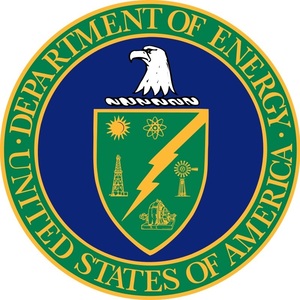DOE: Upcoming FOA to support R&D for new biobased plastics




December 16, 2019
BY Erin Krueger
The U.S. Department of Energy published a notice of intent on Dec. 10 announcing plans to issue a funding opportunity announcement (FOA) that will support research and development for new biobased plastics that are capable of efficiency recyclability. It also aims to develop improved recycling strategies that can break down existing plastics into chemical building blocks that can be used to make higher-value products.
The FOA will be jointly funded by the Bioenergy Technologies Office and Advanced Manufacturing Office. It will support DOE’s Plastics Innovation Challenge, a program launched in November 2019 to accelerate innovations in energy-efficient plastics recycling technologies.
Advertisement
Advertisement
Earlier this year BETO and AMO jointly funded the Bio-Optimized Technologies to Keep Thermoplastics out of Landfills and the Environment (BOTTLE) Consortium, a national lab-led seed consortium established to focus on designing new plastics and recycling strategies. The DOE said the new FOA aims to expand that effort beyond the consortium and utilize resources BOTTLE has developed through partnerships with industry, universities and others to advance DOE’s Plastics Innovation Challenge.
According to the DOE, BETO and AMO have identified significant potential to improve the carbon efficiency and energy efficiency of plastics recycling technologies. To achieve that potential, research is needed to develop novel polymers that are designed for infinite recyclability, create innovative deconstruction pathways for existing polymers that generate high-value products, and establish a consistent framework for evaluating carbon and energy efficiency across potential material flows and transformations.
Advertisement
Advertisement
The FOA is expected to include three primary topic areas. The first, highly recyclable or biodegradable biobased plastics, aims to develop biobased plastics that have improved performance attributes over a comparable existing plastics and can be cost-effectively recycled or biodegrade completely in the environment or in compost facilities. The second, novel methods for deconstructing and upcycling existing plastic waste, aims to develop energy efficient chemical recycling technologies that are capable of breaking down plastics streams into intermediates that can be upgraded into higher value products. The third, BOTTLE consortium collaborations to tackle challenges in plastic waste, aims to develop collaborations with the BOTTLE laboratory consortium to further the long-term goals of the consortium and the Plastics Innovation Challenge.
The EERE plans to issue the FOA in January 2020. Additional information is available under DE-FOA-0002244 on the DOE’s EERE Exchange website.
Related Stories
The U.S. Department of Energy Bioenergy Technologies Office (BETO) announced up to $23 million in funding to support research and development (R&D) of domestic chemicals and fuels from biomass and waste resources.
The U.S. DOE has announced its intent to issue funding to support high-impact research and development (R&D) projects in two priority areas: sustainable propane and renewable chemicals and algal system cultivation and preprocessing.
Sens. Sherrod Brown, D-Ohio, and Pete Ricketts, R-Neb., in August introduced the Renewable Chemicals Act, a bill that aims to create a tax credit to support the production of biobased chemicals.
The Chemical Catalysis for Bioenergy Consortium, a consortium of the U.S. DOE’s Bioenergy Technologies Office, has launched an effort that aims to gather community input on the development of new biomass processing facilities.
USDA on March 8 celebrated the second annual National Biobased Products Day, a celebration to raise public awareness of biobased products, their benefits and their contributions to the U.S. economy and rural communities.
Upcoming Events










